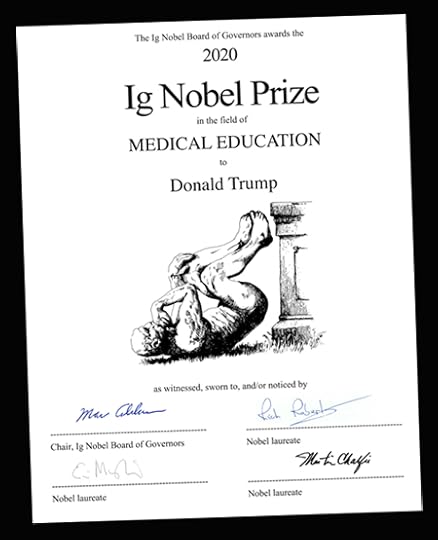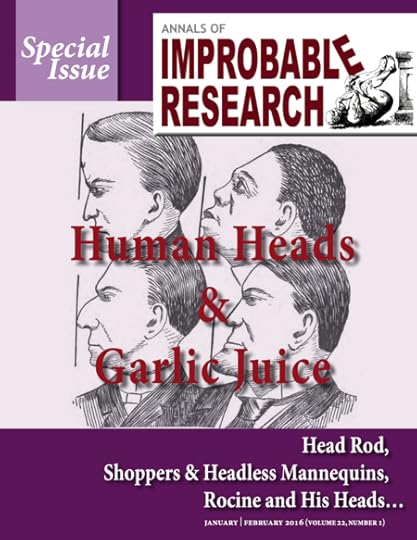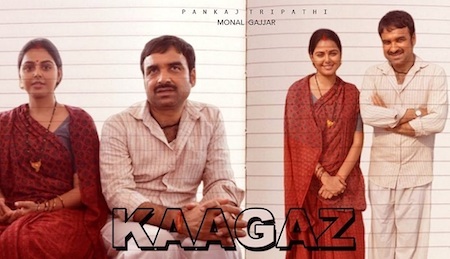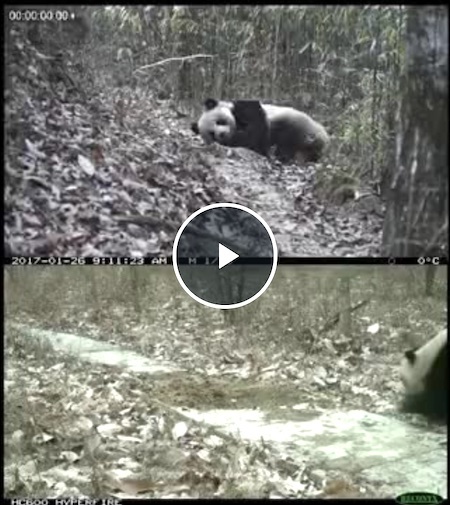Marc Abrahams's Blog, page 93
December 14, 2020
Playing pop hits not linked to increased profit for London buskers [study]
Does the choice of music which a busker plays affect how much money is donated? Perhaps not as so much as you might think.
Over the course of 24 days in 2019, a field experiment was carried out by a research team from Goldsmiths [1] University of London. It featured a professional busker [2] performing at Waterloo station on the London Underground network.
“
Its aim was to investigate the extent to which performative aspects influence behavioural responses to music street performances. Two aspects of the performance were manipulated: familiarity of the music (familiar vs. unfamiliar) and body movements (expressive vs.restricted).”
278 bypassers donated, but whether the busker played well known hit songs, or lesser known ones in a similar style, appeared to make no significant difference to the cash received. Neither did body movements.
See: Anglada-Tort, Manuel; Thueringer, Heather and Omigie, Diana. 2019. The Busking Experiment: A Field Study Measuring Behavioural Responses to Street Music Performances. Psychomusicology: Music, Mind, and Brain, 29(1), pp. 46-55
Notes:
[1] Goldsmiths, officially, nowadays, has no trailing apostrophe. Though it may have done in the past, when it was Goldsmiths’ College.
[2] The photo is from the study – the identity of the professional busker is unclear.
Research research by Martin Gardiner

December 13, 2020
Podcast Episode #1046: “Standardized Food Glops”
In this Podcast Episode #1046, Marc Abrahams shows some unfamiliar research studies to Nicole Sharp. Dramatic readings and reactions ensue.
Remember, our Patreon donors, on most levels, get access to each podcast episode before it is made public.
Nicole Sharp encounters:
National Institute of Standards and Technology (2009). ‘Certificate of Analysis – Standard Reference Material 1548A: Typical Diet,’ https://www-s.nist.gov/srmors/view_detail.cfm?srm=1548A
Sharpless, Katherine E., Jennifer C. Colbert, Robert R. Greenberg, Michele M. Schantz, and Michael J. Welch (2001). ‘Recent Developments in Food-Matrix Reference Materials at NIST.’ Fresenius Journal of Analytic Chemistry 370: 275–78.
Seth Gliksman, Production Assistant
Available on Spotify, Apple Podcasts, Overcast, Google Podcasts, AntennaPod, BeyondPod and elsewhere!

December 11, 2020
Ig Nobel Prize winner Trump teaches a new lesson
Donald Trump, one of the nine co-winners of the 2020 Ig Nobel Prize for Medical Education is in news headlines worldwide yet again, for his educational endeavors with the Covid-19 virus. The Washington Post reports today (December 11, 2020):
White House orders FDA chief to authorize Pfizer-BioNTech vaccine Friday or submit his resignation
In the three months since winning his Ig Nobel Prize, Trump has continued to experiment in many ways, sometimes personally with the virus and with an assortment of drugs.
The 2020 Ig Nobel Prize for Medical Education
The image you see here is the certificate awarded to Mr. Trump at the 30th First Annual Ig Nobel ceremony on September 17. The certificate is signed, as per tradition, by several Nobel Prize winners.

That Ig Nobel Prize for Medical Education was awarded to Jair Bolsonaro of Brazil, Boris Johnson of the United Kingdom, Narendra Modi of India, Andrés Manuel López Obrador of Mexico, Alexander Lukashenko of Belarus, Donald Trump of the USA, Recep Tayyip Erdogan of Turkey, Vladimir Putin of Russia, and Gurbanguly Berdimuhamedow of Turkmenistan, for using the Covid-19 viral pandemic to teach the world that politicians can have a more immediate effect on life and death than scientists and doctors can.

Journal of the Passive Voice has been
A good time was had by all who looked back at the founding, in mini-AIR, in May 1998, of the Journal of the Passive Voice (JPV):
————————————————————-
1998-05-09 Passivity Seen as Not Passe
The following report was prepared by Miriam Bloom, editor of our new sub-publication “The Journal of the Passive Voice”:
“A great deal of pleasure was felt when this fine letter was
received by me, who was appointed editor of the JPV.
It was written by Ross Knights”:
* * *
‘I was struck by the offer that had been recently presented to me
via the Web to be allowed the opportunity for my work to be seen
worldwide. The goal is considered imperative that the use of active
voice will have been limited as much as possible, or will have
been be stamped out utterly. The active voice has been eschewed in
everything done by me, either written or spoken. Feelings can be
spared and diplomacy improved by the application of some simple
principles that are known to all educated speakers of English.’
———————————————————-

December 10, 2020
A Stress-Testing Machine to Gently Grasp a Jellyfish
A new era dawns, perhaps, in how humans try and perhaps succeed in gently handling squishy marine animals. A new study gives details.
“Ultra-gentle soft robotic fingers induce minimal transcriptomic response in a fragile marine animal,” Michael Tessler, Mercer R. Brugler, John A. Burns, Nina R. Sinatra, Daniel M. Vogt, Anand Varma, Madelyne Xiao, Robert J. Wood, and David F. Gruber,” Current Biology, vol. 30, no. 4, February 24, 2020, pp. R157–R158. The authors report:
“while the premise of being ‘gentle’ when handling animals seems intuitive, the hypothesis that newly developed soft robotic grippers have a lower impact on an animal’s stress response had remained untested. Herein we present results from a stress-focused experiment that compares the transcriptional response of a jellyfish (Aurelia aurita) after various forms of physical manipulation, focusing on the impact of new ultra-gentle soft robotic actuating fingers that were specifically developed for jellyfish but have wider applications (e.g., surgical devices and crop harvesting). We find that soft robotic fingers induce significantly less change in gene expression compared to a more traditional rigid claw-grab.”
Further details and images, including the one below, are also on offer from the Wyss Institute.


December 9, 2020
From Flying Frogs to Pencil Detritus to Sandcastles
New research from Ig Nobel (and Nobel) Prize winner Andre Geim: Jennifer Ouellette reports, in Ars Technica:
Physicists solve 150-year-old mystery of equation governing sandcastle physics
“This came as a big surprise. I expected a complete breakdown of conventional physics.”
Building sandcastles at the beach is a time-honored tradition around the world, elevated into an art form in recent years thanks to hundreds of annual competitions. While the basic underlying physics is well-known, physicists have continued to gain new insights into this fascinating granular material over the last decade or so. The latest breakthrough comes from Nobel Laureate Andre Geim’s laboratory at the University of Manchester in England, where Geim and his colleagues have solved a mathematical puzzle—the “Kelvin equation”—dating back 150 years, according to a new paper just published in Nature….
Earlier, Prize-winning Works
The 2000 Ig Nobel Physics Prize was awarded to Andre Geim and Michael Berry, for using magnets to levitate a frog. [REFERENCE: “Of Flying Frogs and Levitrons” by M.V. Berry and A.K. Geim, European Journal of Physics, v. 18, 1997, p. 307-13.]
Ten years after that, Andre Geim and his student Konstantin Novoselov were awarded a Nobel Physics Prize for their discovery, using sticky tape and a pencil, of bits of, and bits of understanding of, graphene, a two-dimensional form of carbon.

Update on Movie about Founder of the Association of Dead People
Here’s an update (in Serenata Mariachi) on the feature film about 2003 Ig Nobel Peace Prize winner Lal Bihari, founder of the Association of Dead People:
Pankaj Tripathi Starrer “Kaagaz” To Release Soon – EXCLUSIVE DETAILS
…Originally titled “Mritak” and now called “Kaagaz”, the movie stars Pankaj Tripathi in the lead role. The biographical drama revolves around how Lal Bihari, an Indian farmer who realized that he was officially declared dead when he went to get a loan from a bank. When asked for identity proof, he realized that he registered dead after an uncle bribed an officer to get away with his land. After investigating, he found more than 100 people stuck in such a similar situation after which he formed ‘Mritak’, which is a society of dead people who are alive.
IMDB has a full cast list for the movie.
Some Earlier Adventures of Lal Bihari
These ‘Dead’ Are Fighting to Stay Alive
The dead are rising up against their national leaders
Lal Bihari ‘Mritak’ meets fellow Ig-winners

Update on Film about Founder of the Association of Dead People
Here’s an update (in Serenata Mariachi) on the feature film about 2003 Ig Nobel Peace Prize winner Lal Bihari, founder of the Association of Dead People:
Pankaj Tripathi Starrer “Kaagaz” To Release Soon – EXCLUSIVE DETAILS
…Originally titled “Mritak” and now called “Kaagaz”, the movie stars Pankaj Tripathi in the lead role. The biographical drama revolves around how Lal Bihari, an Indian farmer who realized that he was officially declared dead when he went to get a loan from a bank. When asked for identity proof, he realized that he registered dead after an uncle bribed an officer to get away with his land. After investigating, he found more than 100 people stuck in such a similar situation after which he formed ‘Mritak’, which is a society of dead people who are alive.
IMDB has a full cast list for the movie.
Some Earlier Adventures of Lal Bihari
These ‘Dead’ Are Fighting to Stay Alive
The dead are rising up against their national leaders
Lal Bihari ‘Mritak’ meets fellow Ig-winners

December 7, 2020
Why Wild Giant Pandas Frequently Roll in Horse Manure
The question of the wild giant pandas frequently roll in horse manure is explored in a new study called “Why Wild Giant Pandas Frequently Roll in Horse Manure.”
“Why Wild Giant Pandas Frequently Roll in Horse Manure,” Wenliang Zhou, Shilong Yang, Bowen Li, Yonggang Nie, Anna Luo, Guangping Huang, Xuefeng Liu, Ren Lai, and Fuwen Wei, Proceedings of the National Academy of Sciences, December 7, 2020. The study includes videos of the activity.
The authors, at the Chinese Academy of Science, report:
“In nature, it is extremely rare to observe attraction to fecal matter between wild mammalian species. Horse manure rolling (HMR) behavior described in this study is frequently observed in QIN pandas at low habitat temperature. Based on integrated analysis from climatic data, animal behaviors, and molecular assays, HMR is found as a temperature-, chemical-, and TRPM8-related behavior that may contribute to pandas’ cold tolerance. This study sheds light on how wild animals actively seek and utilize potential chemical resources from their habitat for survival adaptation.”
Word is spreading. Katherine Wu interviewed some scientists about this, for the New York Times, and other reports are proliferating.

Podcast Episode #1045: “Do Cats Sometimes Pay Some Attention to Their Owners?”
In Podcast Episode #1045, Marc Abrahams shows an unfamiliar research study to Jean Berko Gleason. Dramatic readings and reactions ensue.
The research mentioned in this episode is featured in the special Human Heads & Garlic Juice issue (Vol. 22, #1) of the Annals of Improbable Research Magazine.

Remember, our Patreon donors, on most levels, get access to each podcast episode before it is made public.
Jean Berko Gleason encounters:
“Social Referencing and Cat–Human Communication,” I. Merola, M. Lazzaroni, S. Marshall-Pescini, and E. Prato-Previde, Animal Cognition, May 2015, Volume 18, Issue 3, pp 639-648.
Seth Gliksman, Production Assistant
Available on Spotify, Apple Podcasts, Overcast, Google Podcasts, AntennaPod, BeyondPod and elsewhere!

Marc Abrahams's Blog
- Marc Abrahams's profile
- 14 followers





